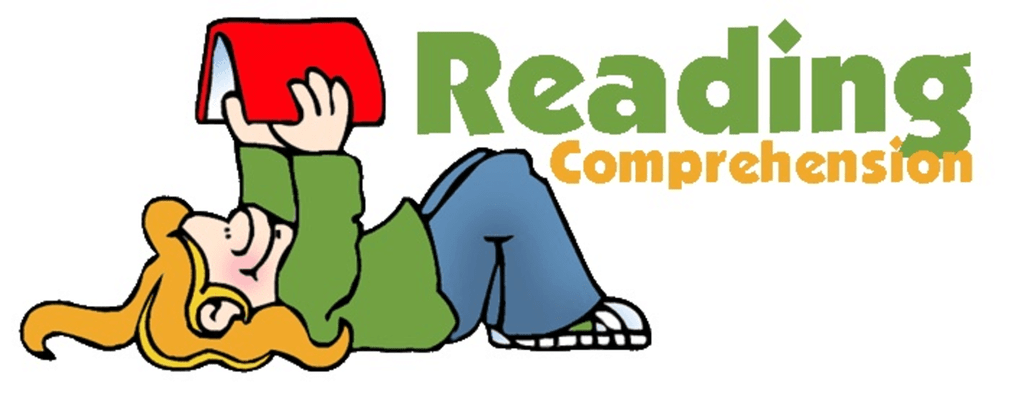Practice Questions: Reading Comprehension - 1 | English Grammar Advanced - Class 10 PDF Download

Passage 1
Read the passage given below:
1. Every time a child takes a soft drink, he's laying the groundwork for a dangerous bone disease. No, fizzy and sugary drinks don't cause Osteoporosis. But, because they are often a substitute for a glass of milk, kids are not getting the Calcium and Vitamin D they need to build a strong skeleton. Many of them also lead a sedentary lifestyle, so they aren't getting the bone-building benefits of vigorous exercise either. These children aren't just in jeopardy for brittle bones and fractures decades down the road. They could be at risk of Osteoporosis at a younger age than ever before.
2. The Indian Society for Bone and Mineral Research, a body of Osteoporosis experts, is trying to spread awareness about this bone-crippling disease. Osteoporosis starts in childhood but has consequences later in life. The condition causes bones to become riddled with holes, like the framework of a house that's been attacked by termites. That can lead to broken bones, which in turn can cause deformity, chronic pain or disability. Osteoporosis can be fatal; up to 25 percent of older people who suffer a broken hip die within a year. Osteoporosis isn't just your grandmother's health threat. Although it strikes over 50 million women in India. It also threatens over 12 million men. Osteoporosis causes loss of height, pain in joints and back, fractures and a fear of fractures and can be very depressing. So we must adopt preventive measures, to save millions of people.
There is a new medical understanding of the best ways to protect ourselves and our children. "Simple lifestyle changes and nutrition will help save your bones", say Dr. Mittal. To get us moving in the right direction, he says, "It's never too late to adopt bone-friendly habits exercise, get enough sunlight, and have adequate Calcium. This way, we can keep our bones healthy and prevent Osteoporosis."
On the basis of your understanding of the passage, answer the following questions that follow:
Q.1. Builds the skeleton for children:
(a) Fizzy drinks
(b) Minerals
(c) Calcium and vitamin D
(d) Sugary drinks
Ans: c
Q.2. A sedentary lifestyle leads to _____:
(a) Healthy life
(b) Brittle bones
(c) Fractures
(d) Unhealthy life
Ans: d
Q.3. Osteoporosis may result in _____:
(a) Deformed bones
(b) Chronic pain
(c) Disability
(d) All of these
Ans: d
Q.4. _____ can not make our bones healthy:
(a) Enough sunlight
(b) Calcium
(c) Sedentary life style
(d) Vigorous exercise
Ans: c
Q.5. Osteoporosis affect _____ in India:
(a) Children
(b) Women
(c) Men
(d) All of these
Ans: d
Q.6. _______ Causes Osteoporosis.
(a) Fizzy and sugary drinks
(b) Avoiding milk in diet
(c) Both (a) and (b)
(d) None
Ans: c
Q.7. ............... is trying to spread awareness about this bone crippling disease.
(a) American Health Club
(b) Indian Society for Bone & Mineral Research
(c) Indian Society for Cancer Research
(d) Indian Society for General Research
Ans: b
Q.8. Find the same meaning words/phrase which means 'Prepare the foundation'.
(a) deformation
(b) later in life
(c) laying the ground work
(d) both (a) and (c)
Ans: c
Q.9. Find the word which is the synonym of 'peril'.
(a) jeopardy
(b) decades
(b) substitute
(d) frame work
Ans: a
Q.10. How many people who are old, suffer a broken hip?
(a) 24 percent
(b) 12 million
(c) 25 percent
(d) 50 million
Ans: c
Q.11. Osteoporosis can sometimes be fatal.
(a) Not sure
(b) Yes
(c) No
(d) Possibly
Ans: b
Q.12. The human body structure is compared with the frame work of house and disease is compared with......
(a) animals
(b) insects
(c) termites
(d) beetles
Ans: c
Passage 2
Read the passage given below
Mind Your Language
1. Change is often met with suspicion, and the rapidly raging SMS culture is no exception. As the world and its children went 'mobile', the cell phone's most loved feature Message Service (SMS) became the handiest tool of communication.
Besides convenient templates like 'I'll be late,' 'I'm busy right now, and even Tm sorry1 SMS is now used to convey all kinds of emotions, jokes, SOS alerts, News and entertainment information. The languages, which converted 'too' to '2', 'you are' to 'ur' and 'take care' 'tc', among the million other sms' isms, may well have begun to save space and cost. However, the conundrum of figuring out newly coined short forms caught on with such fervour that despite the rapidly declining rates offered by phone companies, the trend continues.
2. Students and young professionals often employ this 'half-baked' language in almost all aspects of their lives. "Five out of 10 resumes I see are peppered with SMS languages", reveals an HR executive adding, "Besides coming across as highly unprofessional, these CVs are instantly rejected, even though the qualifications may be up to the mark.
3. SMS lingo has also invaded the usually meticulous examination system with students of ail 250 classes almost subconsciously using short forms in their answer papers. "We have made it a policy to cut half a mark per short form in class and unit tests. Children have failed, but the the trend continues" laments an English teacher at a suburban school.
4. But are the youths pay heed to these complaints ? "I don't see any harm in using short forms, as long as the message is clear, and these days everyone does understand the commonly used SMS language," claims a 22 year-old young professional.
5. Most English words are twice as long as they need be, staggering under a weight of unvoiced vowels and surplus consonants. Surely pupil are saving paper and helping examiners with their brevity. All change must start somewhere and already a million fingers are tapping out a revolution.
6. Sitting firmly on the other side of the fence, a journalist asserts that English is a funny language is the biggest cliche of all, but to lambast the rules of spelling in the manner that SMS does, is immature and despicable. We already have more forms of English than we can account for. Here we are trying to confer a common language on the globalising world in order to get all people to speak an understandable variety of the same basic language. And instead, we have to waste time and energy convincing people that further fragmentation of words would be taking a long step back, and not forward."
On the basis of your understanding of the passage, answer the following questions that follow:
Q.1. What is the point of argument in the given passage?
(a) SMS led to fragmentation of words
(b) SMS is immature
(c) SMS is contemptible
(d) All of the above
Ans: a
Q.2. The shortened forms of English words used in SMS is called:
(a) Java
(b) C++
(c) None
(d) Half baked language
Ans: d
Q.3. Half baked language is used by young professionals in:
(a) Resume
(b) Formal task
(c) Official
(d) All of the above
Ans: d
Q.4. 'SMS' affect in ........... field.
(a) Study & examinations
(b) Official and formal
(c) Love & informal
(d) All of the above
Ans: d
Q.5. A journalist asserts that English is a ...............
(a) difficult language
(b) easy language
(c) funny language
(d) useless language
Ans: c
Q.6. 'I'll be late', 'I'm busy' etc. are called ............
(a) message
(b) sender
(c) templates
(d) challenge
Ans: c
Q.7. "Students are using short forms in their answer papers", laments the....... teacher in suburban school.
(a) Hindi
(b) German
(c) French
(d) English
Ans: d
Q.8. The drawback of most English words are ..........
(a) twice as long as needed
(b) unvoiced vowels
(c) surplus consonants
(d) all of the above
Ans: d
Q.9. In para 1 ............. means a confusing and difficult problem.
(a) suspicion
(b) exception
(c) conundrum
(d) fervour
Ans: c
Q.10. A synonym for 'Staggering' (para 5) is:
(a) Confounding
(b) Slithering
(c) Conveying
(d) Deviating
Ans: a
Q.11. Meticulous' in para 3 means:
(a) careful
(b) messy
(c) inaccurate
(d) false
Ans: a
Q.12. 'Criticising harshly' is the meaning of ....... word from the para 6,
(a) staggering
(b) lambast
(c) fragmentation
(d) cliche
Ans: b

Passage 3
Read the passage given below:
I was born in the small but beautiful mountain village of Nakuri near Uttarkashi in Garhwal, with the gurgling, playful Bhagirathi river flowing nearby. My parents were a hard-working and extremely self-contained couple. Even though our family was poor, barely managing the essentials, my father taught us how to live and maintain dignity and self-respect - the most treasured family value till today. At the same time my parents also practised the creed, "Kindness is the essence of all religion." They were large-hearted, inviting village folk passing by to have tea at our home, and gave grain to the sadhus and pandits who came to the house. This characteristic has been ingrained in me so deeply that I am able to reach out to others and make a difference in their lives - whether it is in my home, in society or at the workplace.
I was the third child in the family - girl, boy, girl, girl and boy in that order - and quite a rebel. I developed a tendency to ask questions and was not satisfied with the customary way of life for a girl-child. When I found my elder brother, Bachchan, encouraging our youngest brother, Raju, to take up mountaineering I thought, why not me ? I found that my brothers were always getting preferential treatment and all opportunities and options were open to them. This made me even more determined to not only do what the boys were doing, but to do it better.
The general thinking of mountain people was that mountaineering as a sport was not for them. They considered themselves to be born mountaineers as they had to go up and down mountain slopes for their daily livelihood and even for routine work. On the other hand, as a student, I would look curiously at foreign backpackers passing by my village and wonder where they were going. I would even invite them to my house and talk to them to learn more about their travels. The full significance of this came to me later when I started working. The foreigners took the trouble to come all the way to the Himalayas in order to educate themselves on social, cutural and scientific aspects of mountaineering, as well as to seek peace in nature's gigantic scheme of things.
On the basis of your understanding of the passage, answer the following questions that follow:
Q.1. Which of this does not tell us about the real financial condition of the author's parents ?
(a) poor
(b) barely managing the essentials
(c) well off
(d) not good
Ans: c
Q.2. The most treasured value of the author's family was:
(a) to maintain dignity
(b) to maintain self respect
(c) both (a) and (b)
(d) none of these
Ans: c
Q.3. The author's parents were not.........
(a) kind hearted
(b) selfish
(c) generous
(d) hospitable
Ans: b
Q.4. The author was the........ child in the family.
(a) third
(b) second
(c) first
(d) fourth
Ans: a
Q.5. Which of these is not true?
(a) The author was a rebel
(b) The author was not satisfied with the customary ways
(c) The author's parents were hard working
(d) The author was not determined
Ans: d
Q.6. Which word in the passage means the same as 'favoured'?
(a) preferential
(b) extremely
(c) practised
(d) developed
Ans: a
Q.7. Many foreigners came to the Himalayas to know the different aspects of mountaineering.
(a) False
(b) True
Ans: b
Q.8. The author invited the mountaineers to her home to .....
(a) help them
(b) feed them
(c) learn more about their travels
(d) get earnings
Ans: c
Q.9. Which of the following statements are true?
1. Money is the most transferred part of life.
2. Hard work is the essence of all success.
3. Kindness is the essence of all religion.
4. Self-centeredness is the highest attributes of life.
(a) 1 and 4
(b) 3 and 4
(c) 1 and 3
(d) 2 and 3
Ans: d
Q.10. Which river flows near the mountain village, Nakuri?
(a) The Yamuna
(b) The Ganga
(c) The Bhagirathi
(d) The Brahmaputra
Ans: c
Q.11. Which character traits of the writer is reflecting in this passage?
(a) Rebel
(b) Submissive
(c) Introvert
(d) Self-centered
Ans: a
Q.12. Find the same meaning word "(huge)" in the last paragraph:
(a) backpackers
(b) considered
(c) wonder
(d) gigantic
Ans: d

|
53 videos|210 docs|40 tests
|
FAQs on Practice Questions: Reading Comprehension - 1 - English Grammar Advanced - Class 10
| 1. What is the purpose of reading comprehension? |  |
| 2. How can I improve my reading comprehension skills? |  |
| 3. What are some strategies to enhance reading comprehension? |  |
| 4. Can reading comprehension be improved by speed reading? |  |
| 5. How can I overcome difficulties in reading comprehension? |  |






















